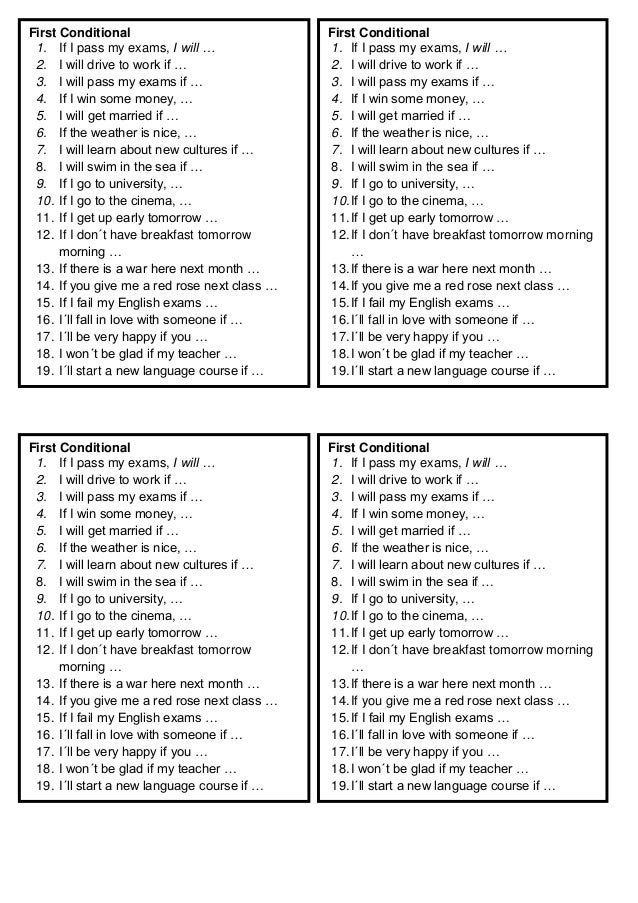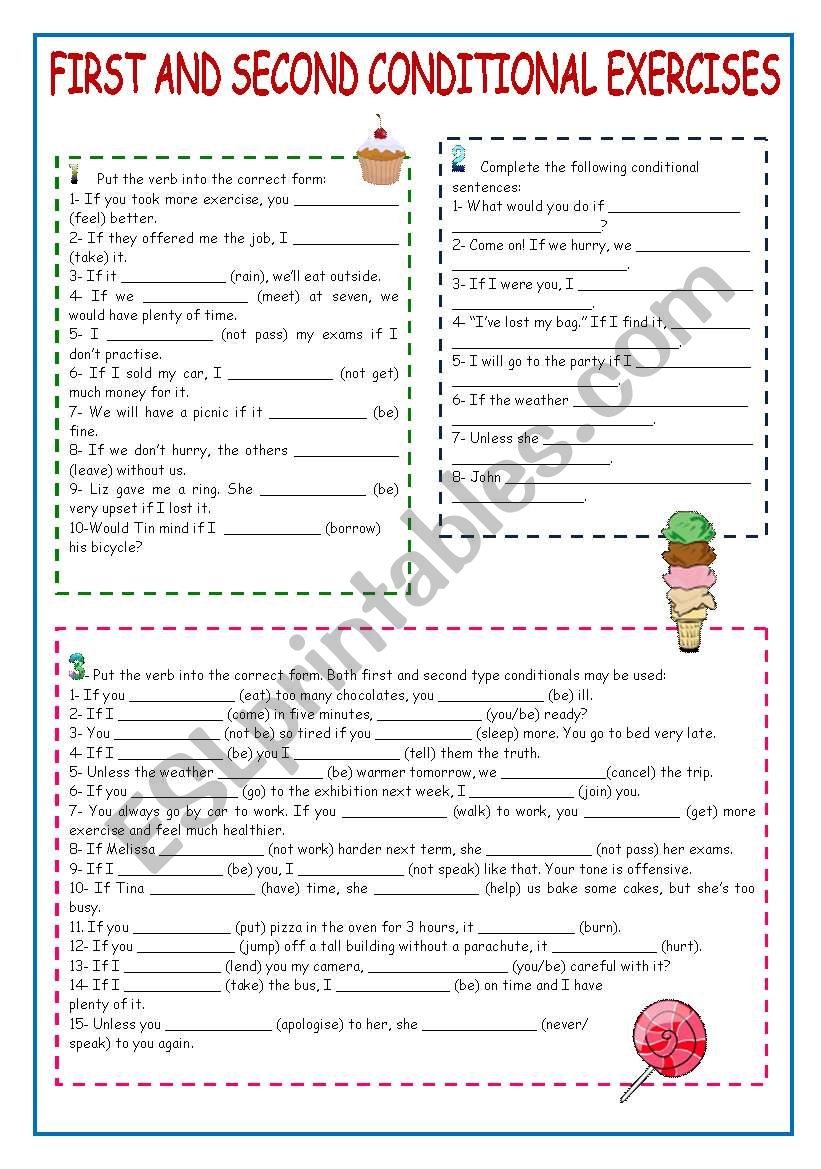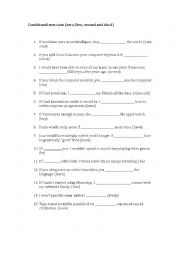

Used to express real or very possible FUTURE situations and their results. For a more complete handout on conditionals, including mixed conditionals, see this conditionals guide. If she changed careers, it might be difficult at first.Īfter going over the difference in meaning between the sentences, give students a copy of the following chart and go over the difference between the first and second conditional. If we hired more people, we’d need more space. If she changes careers, it might be difficult at first. If we hire more people, we’ll need more space. Ask students which sentences are about real situations, and which sentences are about hypothetical, unlikely situations. Ask students to identify the difference in meaning between the sentences in the two columns. Q: Do you have many pictures in your house?Ī: I don't have many pictures but I have 3 statuettes.To begin this lesson on the first and second conditional, show students the chart below. They have a little work to do before they can leave the office. She only has a few apples so we need to go shopping. How much whiskey did you drink last night at the party? When we know if a noun is countable or uncountable, we then use different expressions to ask questions, to say we have a little or a lot of it. How many chickens? means How many small chickens do you want? How much chicken? means How much of a large chicken? What size piece do you want? Some nouns can be countable and uncountable but it changes the meaning: Here are some examples of countable and uncountable nouns in English: BUT The film had seven songs / seven pieces of music. Uncountable nouns are things like water and music which we can't count and don't have plurals. (I won't wait, it will be immediately)Īll nouns in English are divided into countable or uncountable.Ĭountable nouns are things like apples or cars which we can count and have plural forms. I'll call you as soon as my husband comes home. I'll call you when my husband comes home. Compare how "when" and "as soon as" are used:

We use "as soon as" to talk about something happening immediately after. I'll lend you this $10 provided (that) you pay it back by Wednesday. I'll take my credit card in case we see something we want to buy. To do something because you think something else will happen:

I'll stay in a hotel, unless Joan lets me stay in her house for a few days. Unless, when, in case, provided that, until, as soon as. There are other expressions in English that are followed by the present simple in the same way as "if" is in first conditional sentences. If there's nothing in my fridge tonight, I will ring for pizza.

If there's nothing in my fridge, I ring for pizza. In the second sentence, however, it is what you will do tonight, on that one specific occasion. In the first sentence, we are talking about what you always do, it's your rule, if you like. If we study so little, we won't pass the exam. She won't get to know him if he doesn't come! They will see Harry if he comes to the dinner party. If it rains tomorrow, I will stay at home and paint the kitchen. We use the first conditional to say what we will do in a certain situation in the future. A first conditional sentence is comprised of two halves.


 0 kommentar(er)
0 kommentar(er)
